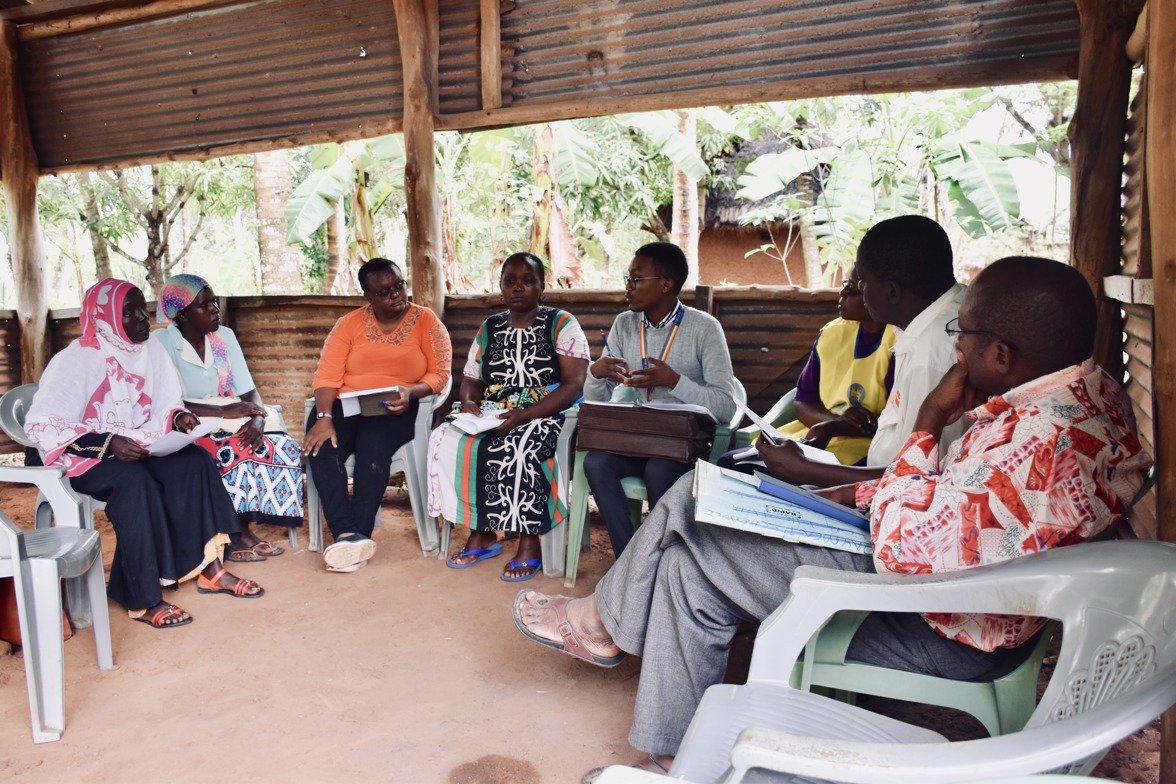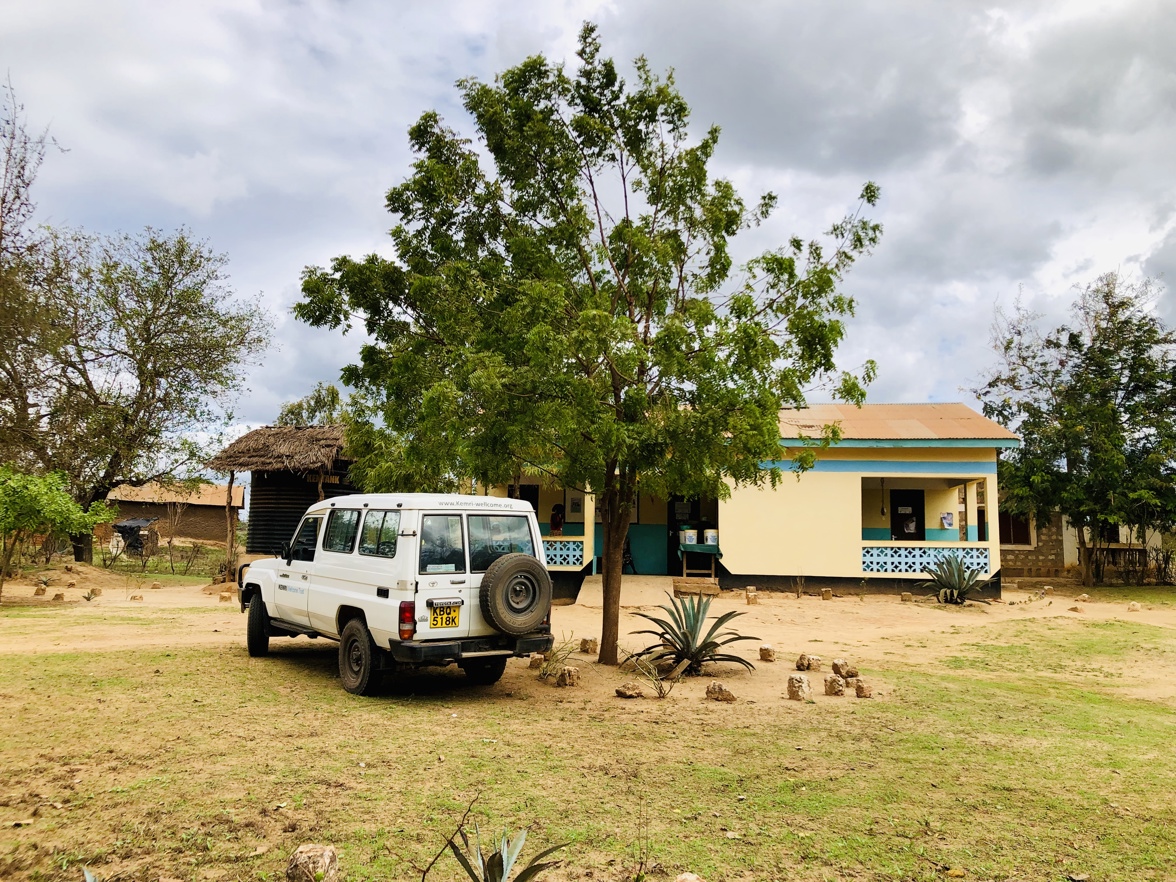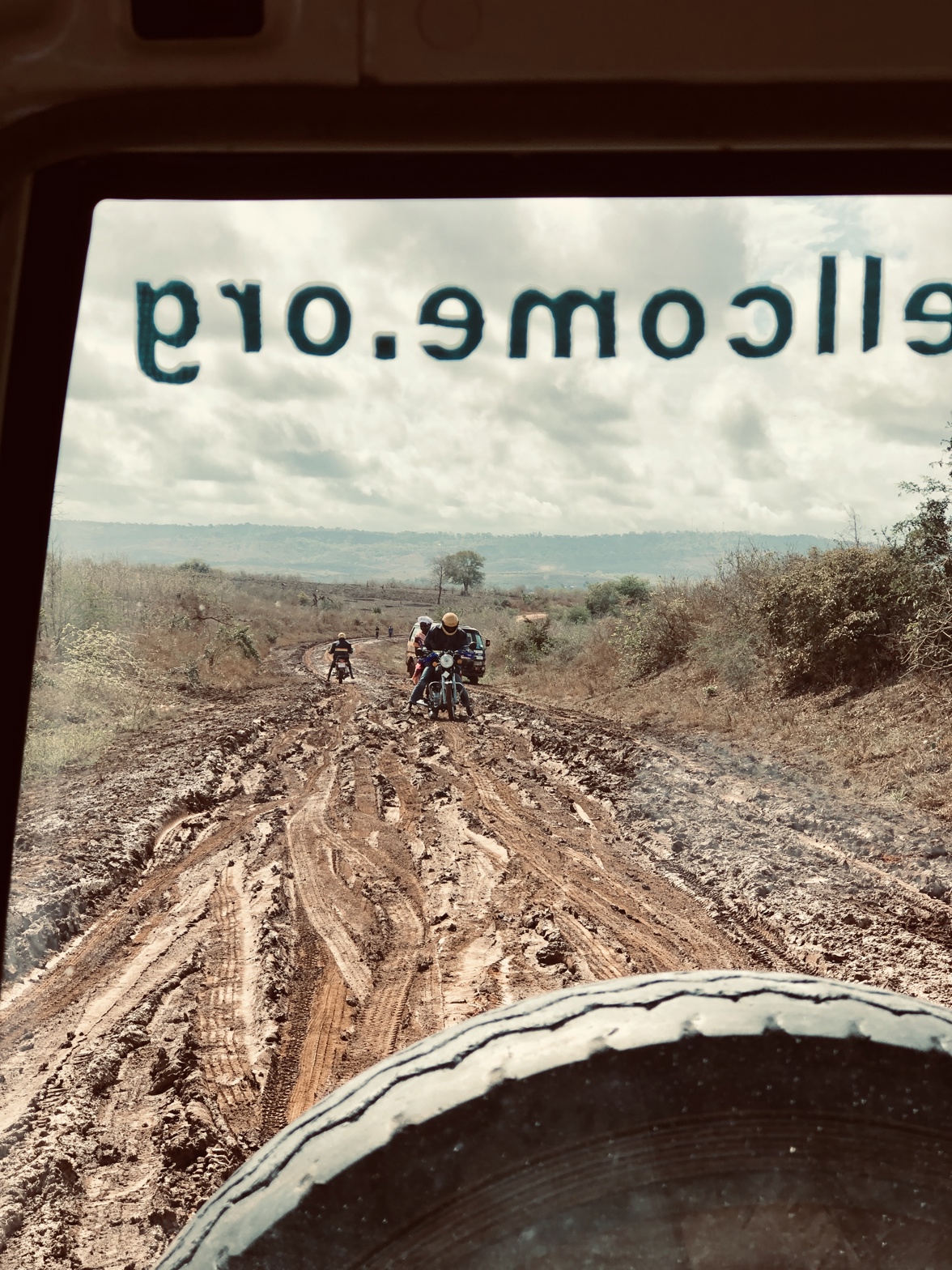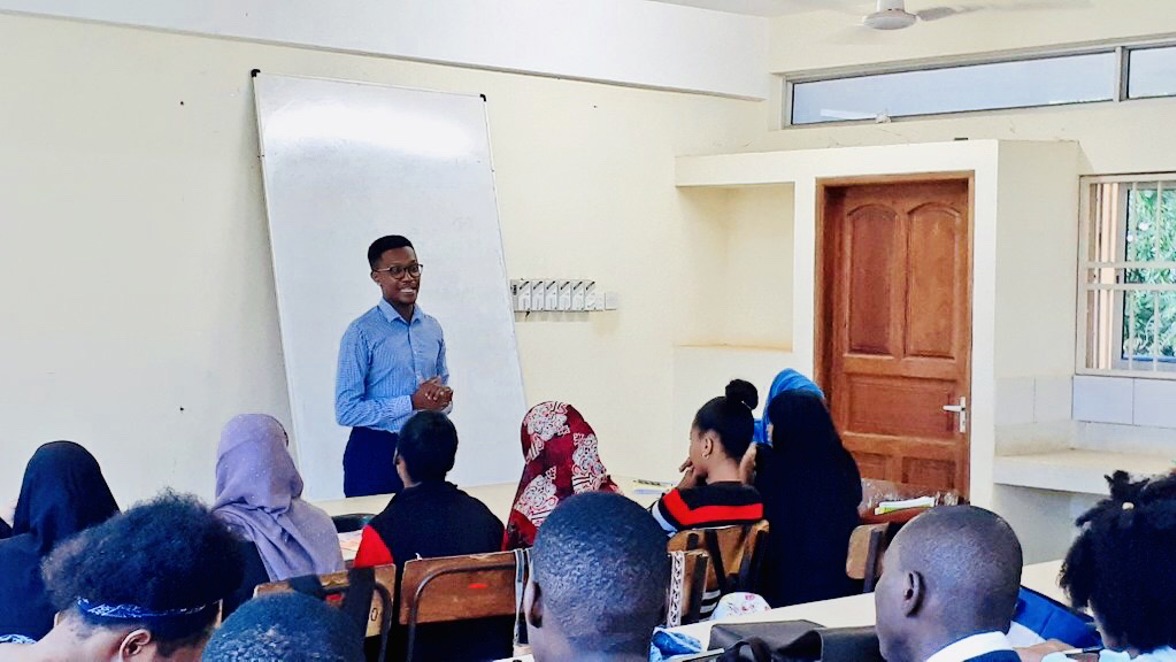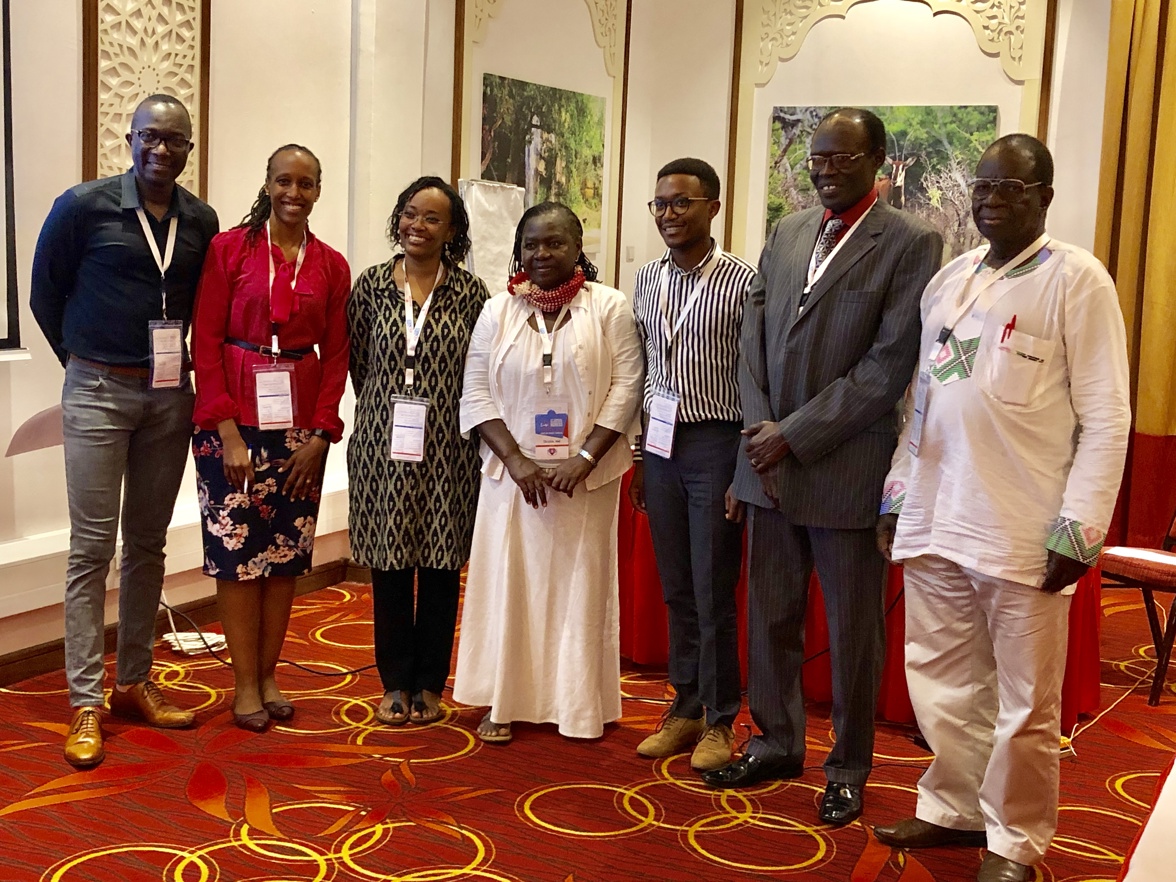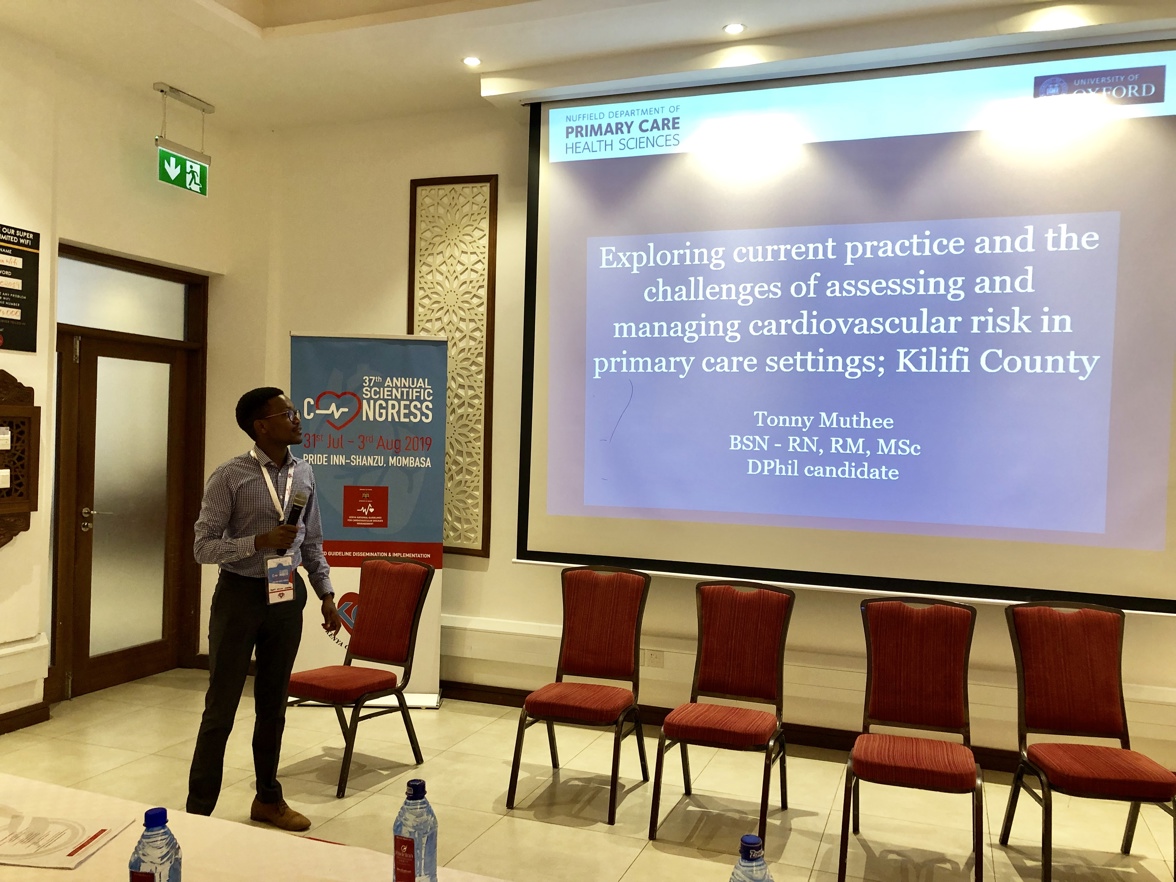The first year of my DPhil (PhD) felt like 12 long months of organised chaos – a quick realisation that what I thought I knew I did not know, and what I needed to know was not known (or documented). Right there is where my DPhil project started to take form. That first year was a master class in trusting the process. After conducting comprehensive literature reviews, a systematic review, heart-breaking grant applications and re-drafting versions of study protocols, it was time for me to go to the field in Kilifi County, Kenya. Before leaving, I ticked all the boxes – qualitative and mixed methods training, funding, successful ethics committee board reviews (two!) and equipment check. I then set out for what is, thus far, the most intellectually stimulating and physically demanding experience of this academic pursuit.
Image Description: Sunset near a bridge connecting the two sides of an Ocean Creek, in Kilifi town.
After about 12 hours of seamless travel, I got to Kilifi town. It was a beautiful and pleasantly warm evening - a refreshing break from the thickness of Oxford’s grey winter. I must warn you that sunsets in Kilifi are ridiculously magical (pictured above) – I will let you be the judge. Within minutes of being on the road, I was so taken in by the views that I politely asked the very kind taxi driver if she could stop for a few minutes – of course, that came with an extra charge and rightfully so, time is indeed money. She chuckled after making her fiscal case, and slowly stopped by the roadside near a bridge connecting the two sides of an Ocean Creek. That moment was magical; it felt like home, which technically is home given that I was only about 8 hours away by road from where I grew up. However, I did not speak the local language, Giriama, and I had never before visited this part of Kenya. The rest of the week went by quickly mainly involving settling in, getting lost, making friends with my new neighbours, brushing up on my Giriama and figuring out various routes to the KEMRI-Wellcome Trust Research Programme (KWTRP).
Kilifi Town is located in Kilifi County along the magnificent coast of Kenya. The historically fishing town lies on the Kilifi Creek and sits on the estuary of the Goshi River. Besides its undeniable beauty, the town is also home to a lot of archaeological sites and a buzzing health research hub. Notably, the Kilifi County Hospital, a primary care referral hospital, is home to the KEMRI-Wellcome Trust Research Programme (KWTRP), a leading medical research centre well known for its landmark progress in infectious disease control and management in the East African region. You can begin to see why this place is like no other – the perfect blend of cutting edge science, history (and white sandy beaches). This was the place for me to be!
I would then spend the next six months based at the KWTRP as a visiting PhD student attached to the Initiative to Develop African Research Leaders (IDeAL). I have a lot of great things to say about this program, but the highlight of it all was being surrounded by young African scientists doing world-class research driven by an ethos of finding African-led solutions for health challenges in Africa and the world. This experience was incredibly empowering and quite frankly fuelled the success of my fieldwork.
My DPhil project aims to examine the prevention and management of cardiovascular risk in Kenyan primary care settings. This fieldwork component, a qualitative study, would provide insight into the current clinical practice, and the challenges of evidence-based approaches to cardiovascular disease risk prevention and management in these settings.


